Selected Plants of Navajo Rangelands
Lichen
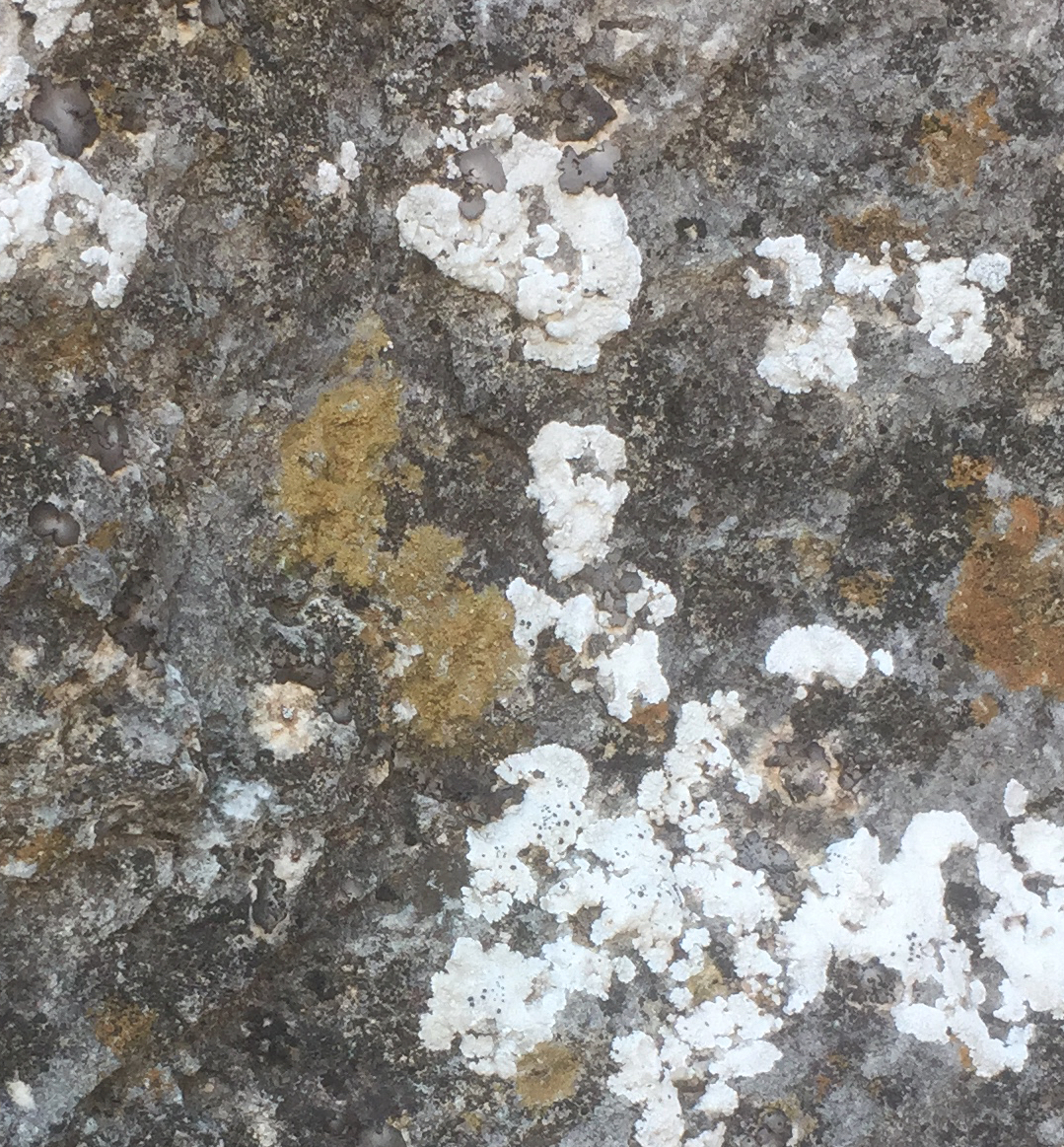
Lichens are not a single organism but rather a symbiotic organism composed of fungi and algae. Lichens grow in a wide variety of habitats including on trees, on rocks, and in the soil. They have the ability to absorb a great deal of moisture. They fulfill a vital ecosystem function because they have the ability to gather atmospheric nitrogen and convert it into a form that plants can use. This is particularly important in the desert where there is very little nitrogen available to plants. Lichens also slowly break down rocks to create soil. Lastly, lichens do not thrive in situations with environmental pollution, and they are therefore an indicator of pollution levels. Both wildlife and humans use lichens. Deer browse on lichens, and birds use lichens as nesting material. Humans eat some lichens and also use them for dye. Lichens display diverse colors and morphology, filling the spectrum from black to red to white. Lichens can be flat or crusty or scaly. Some even grow in the form of tiny shrubs.
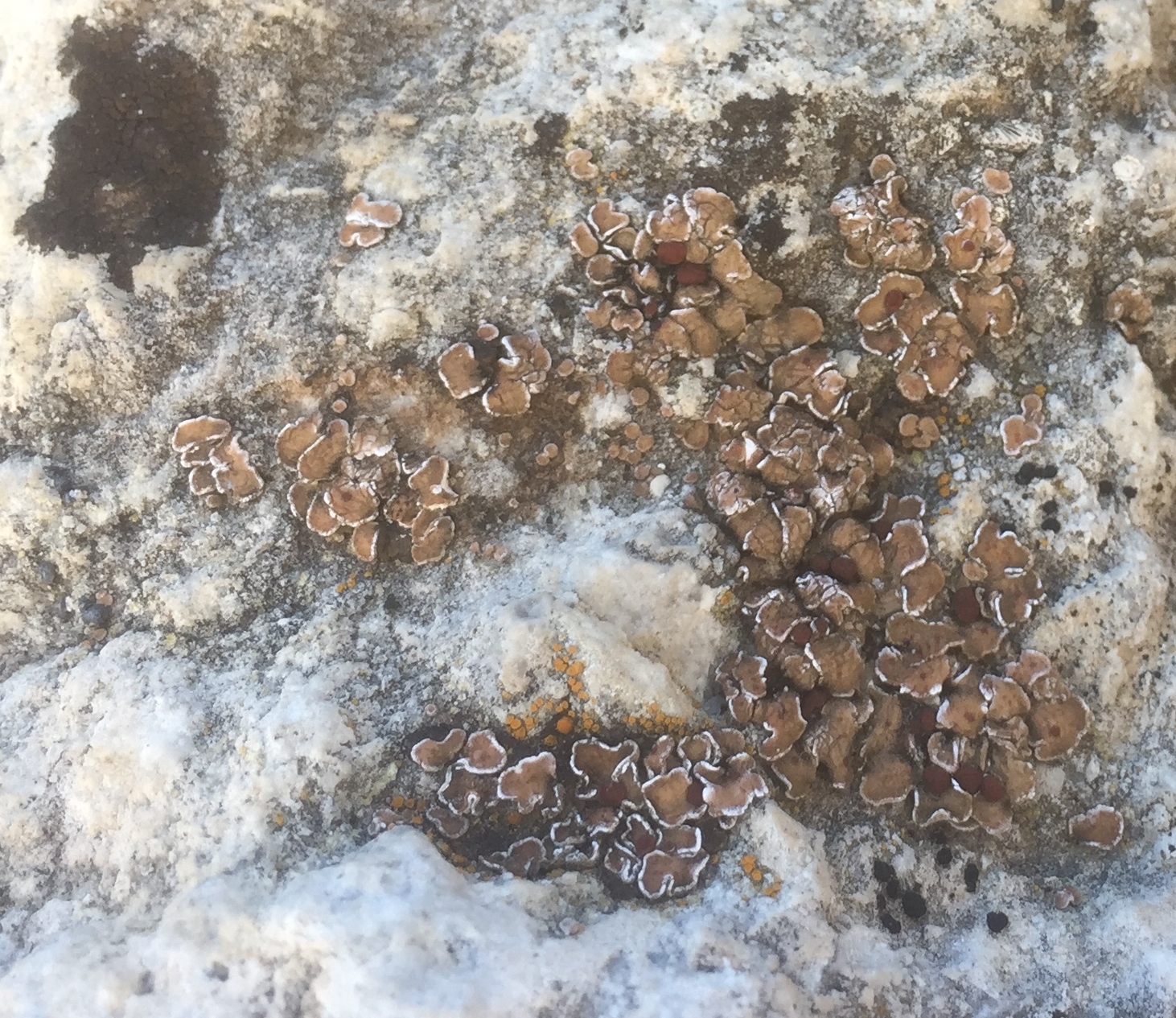
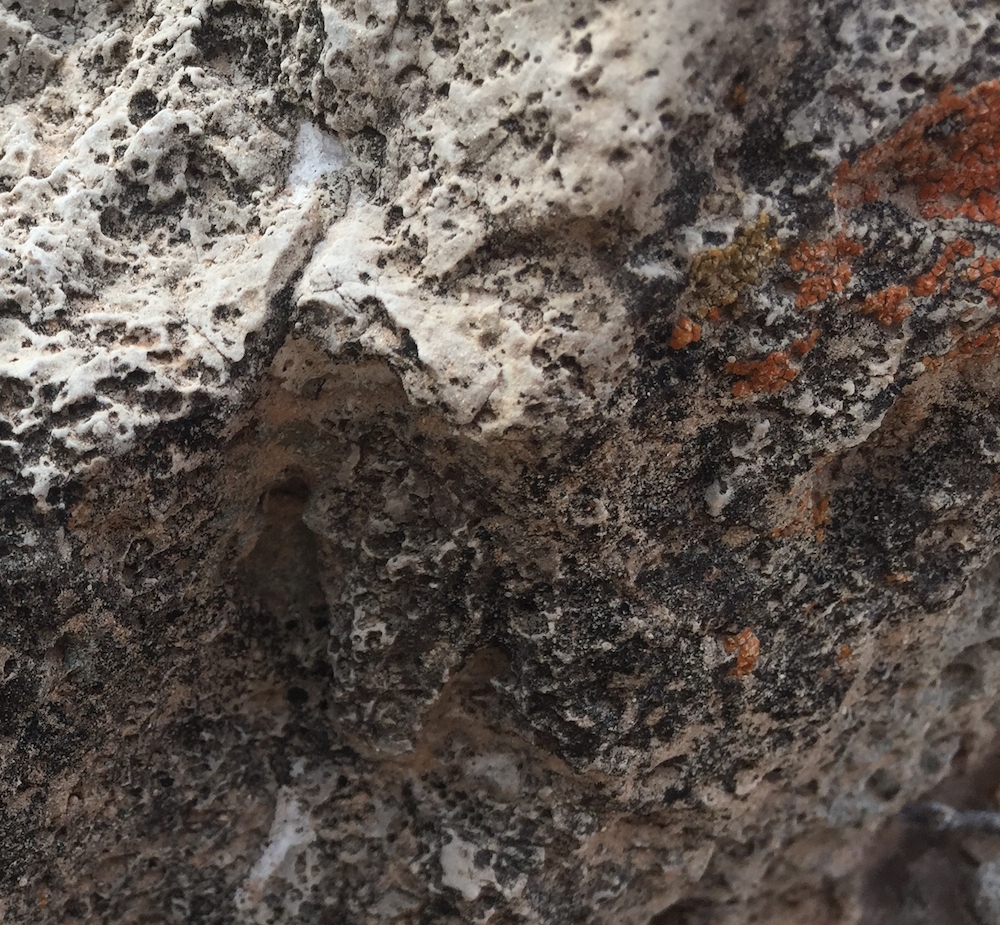
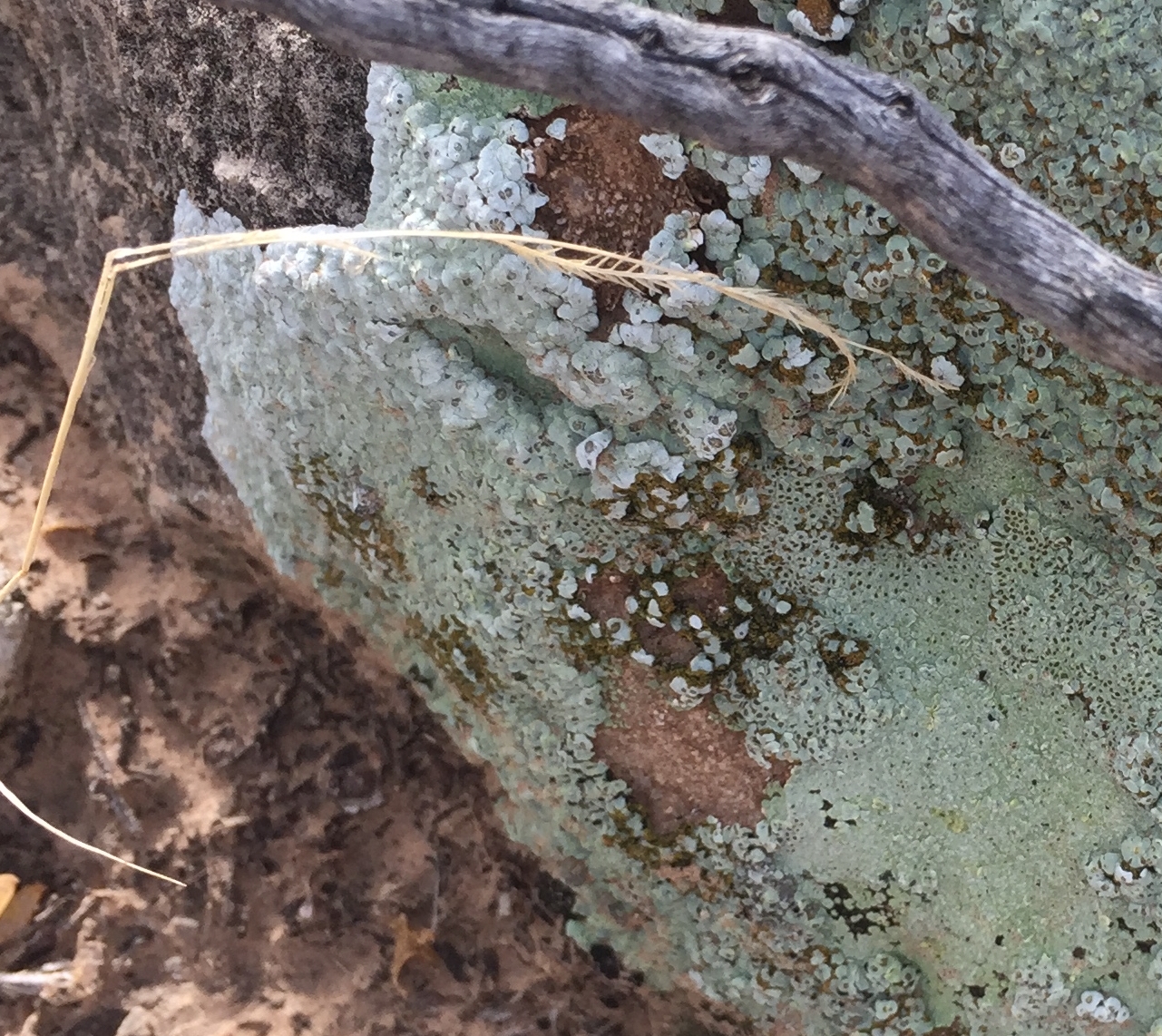
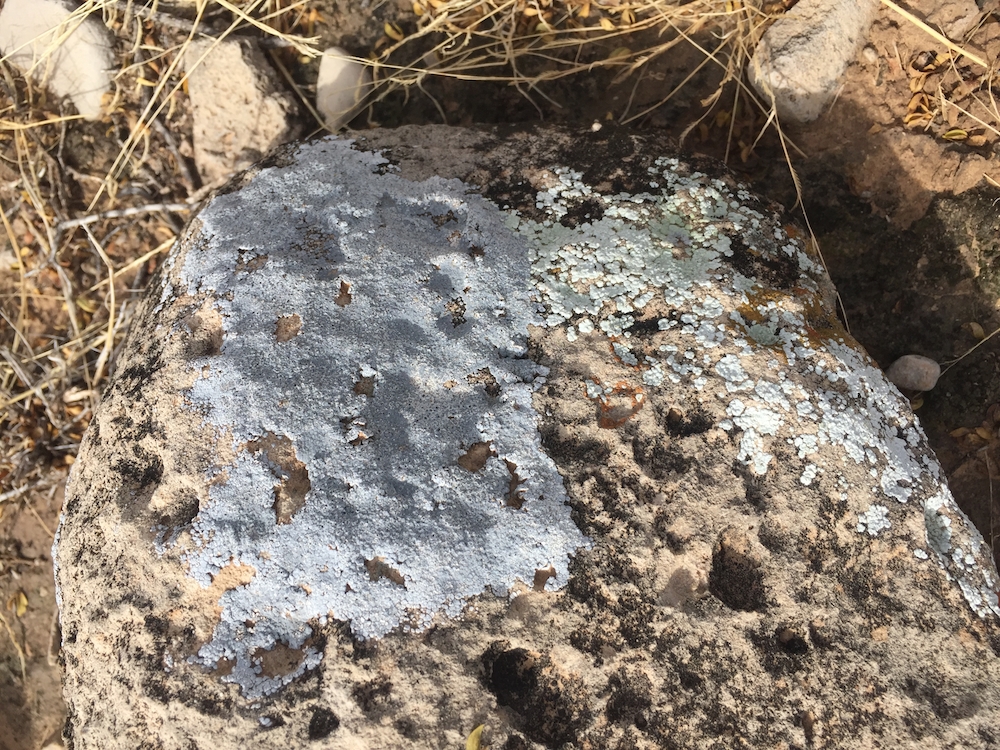
©2018 NMSU Board of Regents.
Individual photographers retain all rights to their images.
Partially funded by the
Western Sustainable
Agriculture Research and Education Program
(westernsare.org; 435.797.2257),
project EW15-023.
Programs and projects supported by Western SARE are
equally open to all people.